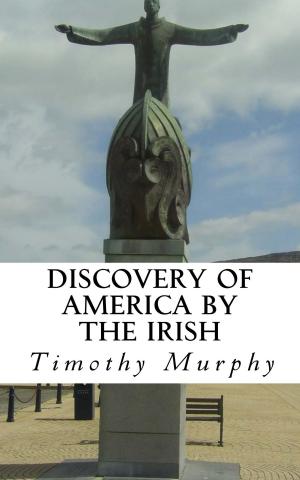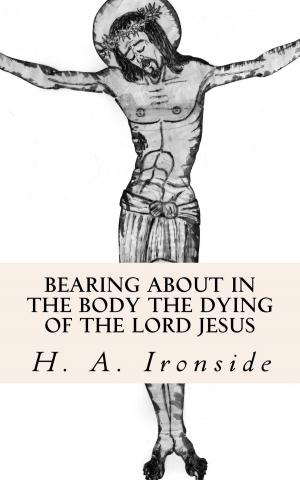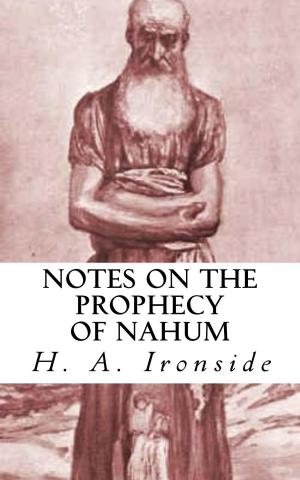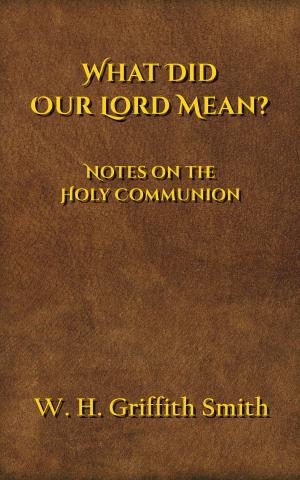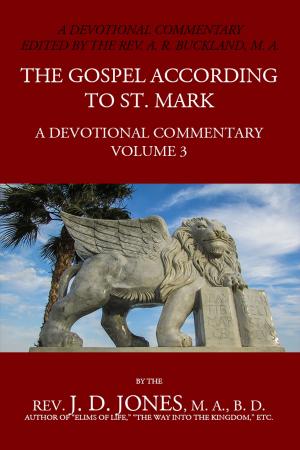Bible Thoughts And Themes: Volume 2
The Gospels
Nonfiction, Religion & Spirituality, Bible & Bible Studies, Meditations, New Testament, Commentaries| Author: | Horatius Bonar | ISBN: | 1230001939415 |
| Publisher: | CrossReach Publications | Publication: | September 27, 2017 |
| Imprint: | Language: | English |
| Author: | Horatius Bonar |
| ISBN: | 1230001939415 |
| Publisher: | CrossReach Publications |
| Publication: | September 27, 2017 |
| Imprint: | |
| Language: | English |
This first verse of Matthew’s Gospel contrasts strikingly with the first verse of John’s; this human pedigree of the Son of God reads strangely when placed side by side with, “In the beginning was the Word, and the Word was with God, and the Word was God.” Yet it all the more exhibits the true Person of Him who was the “Word made flesh,”—“God manifest in flesh,”—true and very man, yet also true and very God.
As we take Matthew’s history literally, so do we take that of John. If we allegorize the first chapter of the one evangelist, we must allegorize the first of the other. If John does not mean that Christ was very God, Matthew does not mean that He was very man. The divine side of Christianity is as strongly shewn in the one evangelist as the human side in the other. He whom we call Lord and Master, Saviour and Redeemer, is one in whose Person the extremes of all being unite. All Godhead and all creaturehood are in Him; the fulness of the finite, and the fulness of the infinite; all the excellence of the created and the uncreated.
I. He is a man. He is not in this chapter expressly called “Son of Adam”; but in Luke’s genealogy we find this designation; and apart from that, the whole of this chapter is a historical exhibition of his true and very manhood. He is of the same stock as we are,—the same ancient root,—the first man Adam, whom God created. He is bone of our bone, and flesh of our flesh; “God sent his Son in the likeness of sinful flesh” (Rom. 8:3). In everything that is truly human He is one of us. He “knew no sin”; He was “that holy thing”; yet was He all the more human because of the absence of sin; for sin is not an original part of our nature. As man, then, He sympathises; He pities; He loves. As man, He “loved his neighbour as himself,” and so “fulfilled the royal law of love.” As man, He was born, He lived, He “grew in stature, and in wisdom, and in favour with God and man” (Luke 2:52). His was thoroughly a human body and a human soul; his was thoroughly a human life and a human death. His was human hunger and thirst, human sleep and waking, human weariness and rest. His words were human words, issuing from human lips, and the utterance of a human heart. His looks were human looks, his tones were human tones, his tears were human tears. He was man all over, yet sinless; man all over, living in man’s world, yet not partaker of that world’s evil; man all over in every step He took, and every word He spoke; man all over in his daily intercourse with his fellow-men, and in his fellowship with his Father in heaven.
This first verse of Matthew’s Gospel contrasts strikingly with the first verse of John’s; this human pedigree of the Son of God reads strangely when placed side by side with, “In the beginning was the Word, and the Word was with God, and the Word was God.” Yet it all the more exhibits the true Person of Him who was the “Word made flesh,”—“God manifest in flesh,”—true and very man, yet also true and very God.
As we take Matthew’s history literally, so do we take that of John. If we allegorize the first chapter of the one evangelist, we must allegorize the first of the other. If John does not mean that Christ was very God, Matthew does not mean that He was very man. The divine side of Christianity is as strongly shewn in the one evangelist as the human side in the other. He whom we call Lord and Master, Saviour and Redeemer, is one in whose Person the extremes of all being unite. All Godhead and all creaturehood are in Him; the fulness of the finite, and the fulness of the infinite; all the excellence of the created and the uncreated.
I. He is a man. He is not in this chapter expressly called “Son of Adam”; but in Luke’s genealogy we find this designation; and apart from that, the whole of this chapter is a historical exhibition of his true and very manhood. He is of the same stock as we are,—the same ancient root,—the first man Adam, whom God created. He is bone of our bone, and flesh of our flesh; “God sent his Son in the likeness of sinful flesh” (Rom. 8:3). In everything that is truly human He is one of us. He “knew no sin”; He was “that holy thing”; yet was He all the more human because of the absence of sin; for sin is not an original part of our nature. As man, then, He sympathises; He pities; He loves. As man, He “loved his neighbour as himself,” and so “fulfilled the royal law of love.” As man, He was born, He lived, He “grew in stature, and in wisdom, and in favour with God and man” (Luke 2:52). His was thoroughly a human body and a human soul; his was thoroughly a human life and a human death. His was human hunger and thirst, human sleep and waking, human weariness and rest. His words were human words, issuing from human lips, and the utterance of a human heart. His looks were human looks, his tones were human tones, his tears were human tears. He was man all over, yet sinless; man all over, living in man’s world, yet not partaker of that world’s evil; man all over in every step He took, and every word He spoke; man all over in his daily intercourse with his fellow-men, and in his fellowship with his Father in heaven.





